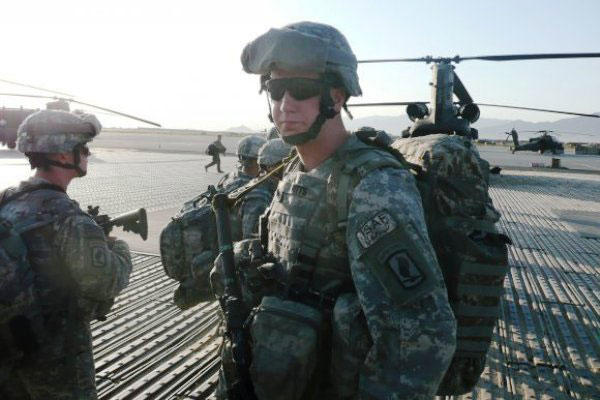A soldier who kept fighting despite grenade shrapnel wounds to the legs and arm in the controversial battle of Wanat in Afghanistan will receive the Medal of Honor, the White House announced Monday.
Former Army Staff Sgt. Ryan M. Pitts, who was medically discharged in 2009, will be the ninth living recipient of the Medal of Honor from the wars in Afghanistan and Iraq. President Obama will present him with the nation's highest award for valor at a White House ceremony on July 21.
Pitts will receive the MOH for his actions while serving as a Forward Observer with 2nd Platoon, Chosen Company, 2nd Battalion (Airborne), 503rd Infantry Regiment, 173rd Airborne Brigade. The battle took place at Vehicle Patrol Base Kahler in the Waygal Valley near Wanat Village in northeastern Kunar Province, Afghanistan.
Last month, Obama awarded the Medal of Honor to another soldier from the 503rd Regiment, 173rd Airbrone Brigade – former Sgt. Kyle J. White.
In 2010, former Staff Sgt. Salvatore Giunta, who also served with the 503rd Regiment of the 173rd, received the Medal of Honor for his actions in Afghanistan's Korengal Valley in 2007. Giunta was the first living recipient of the MOH since the Vietnam War.
Pitts' MOH will be the 16th for the "Sky Soldiers" of the 173rd Brigade since its formation and deployment to France in World War I, according to a 173rd news release.
Nine troops from his unit were killed and 27 others were wounded in the July 13, 2008, attack against Pitts' position in the battle of Wanat, which was later described by several commentators as the "Black Hawk Down" of the Afghanistan war.
An estimated 200 Taliban fighters attacked from high ground and initially broke through U.S. lines before being repelled with heavy losses, according to after action reports.
Families of the fallen troops charged that the defenders were denied adequate support from the chain of command. An investigation of the battle led to recommendations of reprimands for three officers but the officers appealed and the Army later dropped the reprimands.
On the morning of July 13, at about 4 a.m., Pitts was manning Observation Post Topside, which was positioned east of the main base, and east of a bazaar and hotel complex in Wanat, the Army News Service said in an account of the battle released shortly after the MOH announcement.
"Shortly after, soldiers conducting surveillance identified potential insurgents. They put together a request for fire. But before that could happen, at about 4:20 a.m, Soldiers heard machine-gun fire from the north. After that, the valley erupted in enemy fire," the Army account said.
"Soldiers at OP Topside were hit with small arms fire, rocket-propelled grenades and hand grenades. Pitts and six other paratroopers at OP Topside were injured in the initial volley of enemy fire. Two paratroopers were killed. Pitts took grenade shrapnel in both legs and his left arm."
"For more than an hour after, Pitts continued to fight and defend his position and his teammates, despite his injuries," the Army account said.
Pitts later told Military Times of the controversy on the lack of support that "we were doing our jobs."
"We were paratroopers, we were in Afghanistan to go to war and carry out our commander's intent," he said.
"When you understand the battle space, every commander in Afghanistan was dealing with limited resources," Pitts said. "At every level, we were trying to do the best we could with what we had. Everybody fought for each other that day, and we held our ground."
Former Army Sgt. Michael Denton, who also fought in the battle and later received the Silver Star, said "I've heard us called victims; I've heard a lot of things. Tell people not to feel sorry for us. That's the job we wanted to do, that we loved doing it," Denton said.
-- Richard Sisk can be reached at richard.sisk@monster.com




























